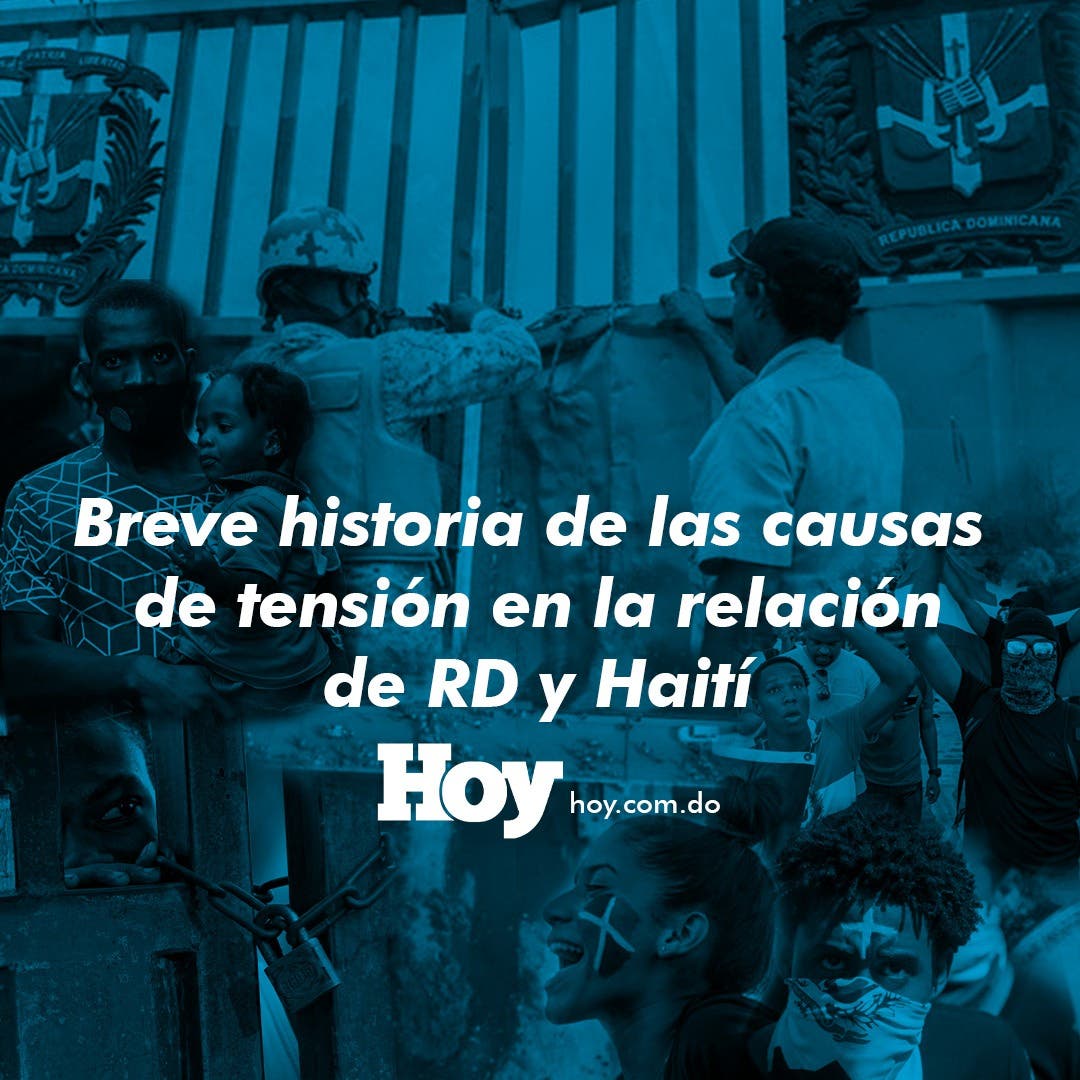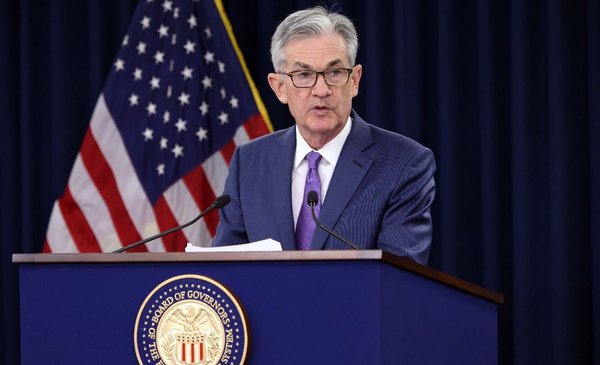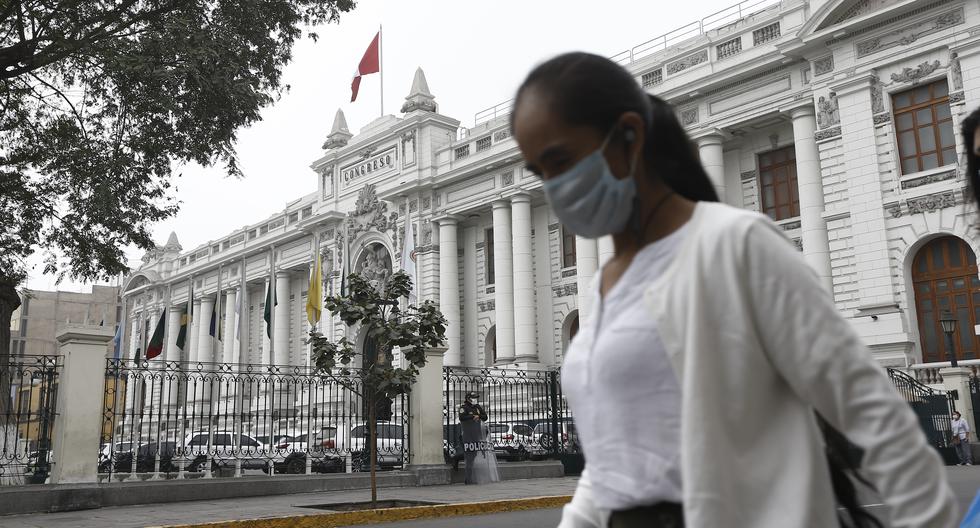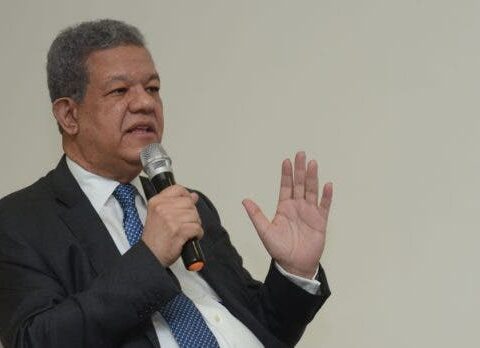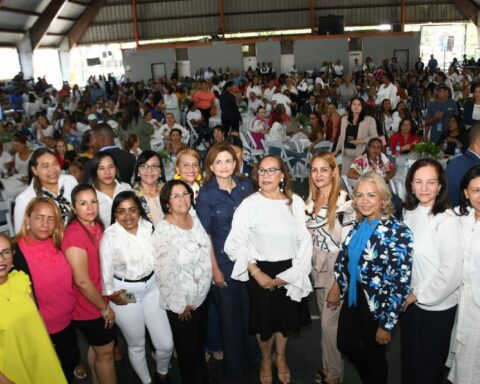Even though the Dominican Republic and the Republic of Haiti have kept “Relatively” Good relations after the time of theFirst Republic”and the foreign policy of both nations with respect to the other has been officially to maintain trade relations and respect for the sovereignty of each countrythe history of both peoples has been colored by the strain.
The socioeconomic conditions of both countries have pushed the Haitian people to try to emigrate in more than one way to the Dominican Republic in search of an improvement in their quality of life, which has pushed the Creole nation to take measures to try to stop, at least , the illegal migration.
According to a report from the Economic Commission for Latin America and the Caribbean (ECLAC)from 2010, the mass migration from Haitians to the Dominican Republic began at the beginning of the twentieth century with the granting (after the military occupation of the United States) of regulated employment contracts mainly to work in the mills of this part of the island.
However, over the years, there are several issues that have caused tension in the relations of both countries. These include:
Read more: Haiti extradites one of the leaders of the 400 Mawozo gang to the US
Illegal migration:
By 2021, the Haitian population in the Dominican Republic was estimated to number at least 500 thousand Haitiansbut more than 70% do not reside legally.
Recently, relations between the two countries took a more hostile turn with the coming to power of the president, Louis Abinader, who assumed a more radical position with respect to that of his predecessor, Daniel Medinawho sponsored the National Plan for the Regularization of Foreigners in which residence permits were granted to nationals of other countries (mostly Haitians) who were in an irregular condition in the Dominican Republic and which was criticized because it was reported to the press that this action had been “Boycotted” because the process was carried out with false documentation.
In addition, the Dominican Republic was criticized by the international community for the resolution of 168-13 of the Constitutional Court in which it was established that those born in the territory of undocumented parents or in irregular condition. The conflict arose from the contradiction of this resolution with what is established in the Dominican Constitution (by that time) that all those born in Dominican territory were Dominicans. Today, the Magna Carta establishes certain requirements for grant nationality, among them being children of foreigners residing legally in the country.
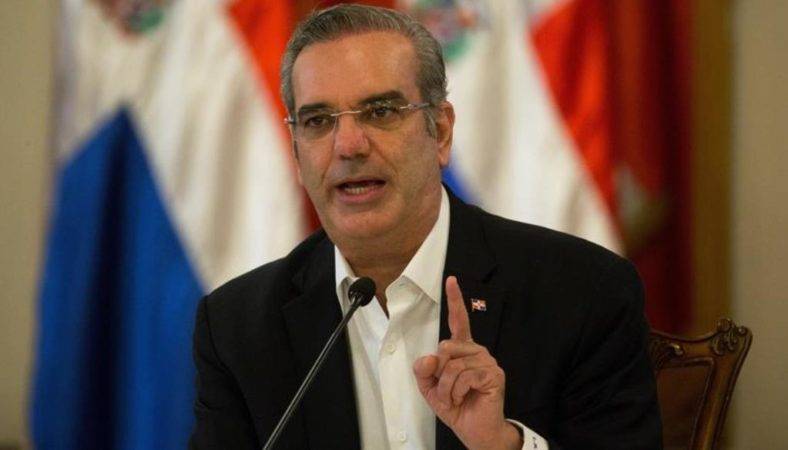
Far from this, President Abinader took the official position that the Haitian socioeconomic situation must be addressed by the international community as a whole and not only by the Dominican Republic, for which he took a series of measures to deal with the situation, including They include: 1) Construction of a perimeter fence in the 380 kilometers of border that separate both countries; 2) the temporary suspension of visas for Haitian students receiving scholarships at universities; 3) the suspension of medical services to illegals; 4) the request to the international community for support to help Haiti, among others.
Kidnappings in Haiti
Another situation that has generated tension in the bilateral relations of both countries has been the Dominican kidnappings in it territory Haitian that seem to have increased since the assassination of Jovenel Moise.
After the president’s assassination, Haiti entered another socioeconomic and political crisis that destabilized the nation and weakened government structures, law and order in that country, making it easier for armed gangs to take control of daily life.
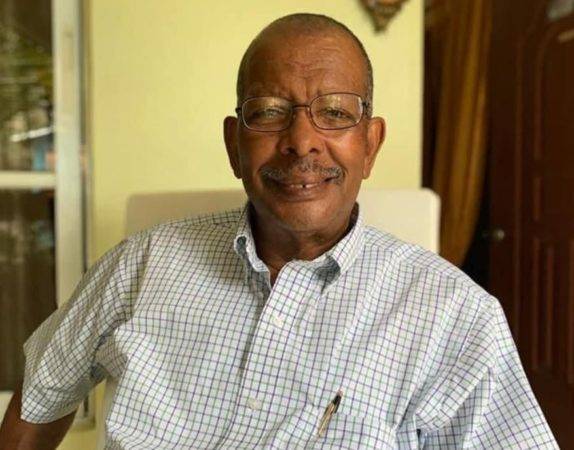
Also read: Three members of the 400 Mawozo gang are murdered in Anse-à-Pitre, Haiti
According to official data from the Ministry of Foreign Affairs of the Dominican Republic (MIREX)since January 2021, in Haiti, criminal gangs They have kidnapped six Dominicans.
The most recent case is that of the commercial attaché of the Dominican Embassy in Port-au-Prince, Haiti, Carlos Guillen Tatiswho was released early this Wednesday after his abduction was attributed to the 400 Mawozo band. It transpired that the diplomat was asking for a ransom from 500 thousand dollars; So far it is unknown if the ransom was paid.
Carlos Guillén is joined by the brothers Michael Enrique and Antonio Gerer Campusano Feliz, kidnapped in February 2021 while working on the filming of a documentary. In September of the same year, Luis Díaz, Joel Pineda and Wilson Montero, truckers, were kidnapped.
These cases bear the similarity that the real conditions in which the victims were released and whether there was direct intervention by the Dominican government or whether the ransom was paid are unknown.
commercial closure of the border
After the arrival of the covid all countries in the world were forced to close their borders at least for a while, Haiti and the Dominican Republic were no exception. However, since one is the largest and closest trading partner of the other, the pandemic has strained the commercial transaction relations of the nations.
When the trade stopped, the economic instability of both countries increased, with Haiti bearing the brunt. In addition, the neighboring nation took action against Dominican products that cross the border, using the pandemic as a justification.
You may be interested in reading: NGO counts 225 kidnappings between January and March in Haiti
Likewise, the Dominican-Haitian border has been closed on several occasions for several days in recent months due to the conflicts caused by the social insecurity that exists in that country as a result of the assassination of Jovenel Moise, which has affected the commercial climate and Pacific that lives in the border area of both nations.
canal construction
Another fact that recently kept in tension at the end of last year and the beginning of this 2022, was the construction of a water channel by the Haitian authorities which diverts part of massacre river that runs through the territory of the Dominican Republic. This situation was presented to international organizations, but the final answer on the matter is not yet known. However, the Haitian authorities have resisted at all times to desist from the construction.
Is there a possibility of military action by the Dominican Republic towards Haiti?
In an interview conducted at the beginning of last April in the program One + One, the foreign ministerRobert Alvarezsaid that the policy of the Dominican Republic with respect to Haiti is that of “Good Neighborhood” due to the transitory nature of the current authorities of that country.
Added to this is that Quisqueya’s foreign policy is diplomacy and dialogue, a position evidenced by President Luis Abinader himself when he called on Russia to lay down its arms and invade Ukraine and assume an attitude of dialogue and understanding, while condemned the actions of President Vladimir Putin.
However, in the face of the kidnapping of Dominicans in Haiti and the murder of Moise, on more than one occasion, the national authorities have organized search and rescue teams made up of military personnel of the National Army, in addition to keeping (according to official information) members of the military institutions on the Dominican-Haitian border as reinforcements to control any situation that threatens national security that occurs in the area. This without intentions invade Haiti for any reason.
Previously, after the times of the “First Republic”, there have been Dominican military actions against Haitians. Of the most prominent are the infamous “Parsley Kill”historical event that occurred in 1937 (during the Trujillo dictatorship) in which Dominican military troops walked with a bouquet of parsley in their hands asking those who looked Haitian to say the name of the plant; this as a way of verifying (because of the difficulty that the Haitian neighbors had in pronouncing the word) the nationality of the questioned person and if he turned out to be a foreigner he was shot immediately and his body thrown into the Masacre River. Historians say that the number of deaths from this action ordered by Trujillo ranges between 9 thousand and 20 thousand dead.
Read: Gang releases US missionaries held in Haiti
Also, in 1963, during the government of Professor Juan Bosch, a crisis arose between the two nations that called on the Dominican president to prepare in arms for any eventuality.
Historians agree that the 1963 conflict between the two countries originated because the then president of Haiti, François Duvalier, allowed his country to be a refuge for former soldiers who served the dictatorship of Rafael L. Trujillo Molina.
In addition, the Dominican Government denounced the presence of Duvalier’s secret military police, known as the “Tonton-Macoute”, in the territory of the Dominican Embassy in Port-au-Prince after Lieutenant François Benoit took refuge in it after the assassination attempt. of the children of Duvalier, of which he was accused.
“We have been insulted without having caused the insult; Our embassy has been invaded by armed forces, which amounts to an invasion of our country and is an inexcusable offense against our dignity. We have been disrespected and the small nations that allow that are not worthy of being nations, because the only thing that can keep us as a sovereign country is the decision to make us respect the small and the large, those who seek to abuse its weakness and those who seek to abuse its strength. Dominican dignity has been outraged in Haiti in an outrageous way. And we are not willing to tolerate that situation and we will not tolerate it for any reason, “Bosch said about the fact.
However, the event did not escalate due to diplomatic pressure from the Organization of American States and the military mobilization on the border ordered by the Dominican Government.
Historically, the Dominican Republic and the Republic of Haiti have been forced to coexist and despite the fact that their history has developed between hostility and mutual disdain, commercial and economic interests, as well as common sense, have prevailed in their rulers and governments.

